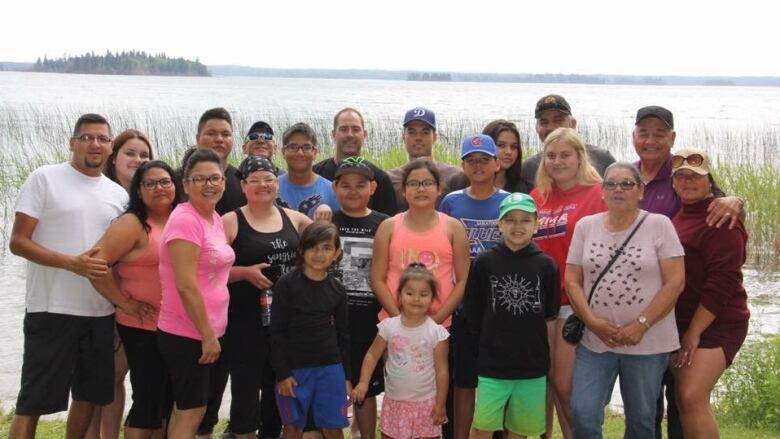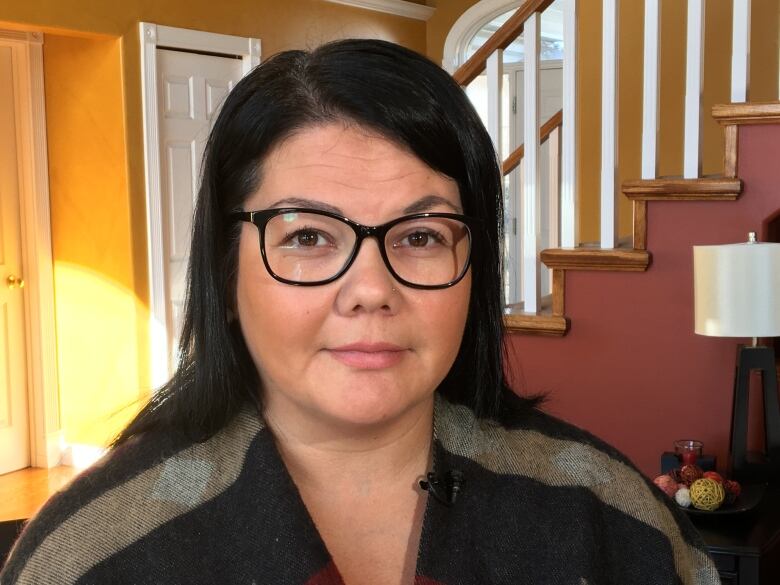'Truth-telling helped us, and it's helping Canada,' says residential school survivor's daughter
Supreme Court ruled survivors will be able to choose whether their IAP testimony records are kept

Amanda Adrian knew there was something wrong with her dad, TedQuewezance.
For years, she and four sisters didn't know what was causing the drinking, the emotional distance and other unhealthy behaviour. Quewezancehad buried his secret deep inside, even after becoming chief of his Keeseekoose First Nation in east-central Saskatchewan.
It was the same secret shared by tens of thousands of Indigenous people across Canada. He was hiding the memory ofphysical and sexual abuse suffered in residential schools.
Then, more than two decades ago, Quewezance became one of the first survivors in in the countryto share his story publicly.
"He exposed a lot of wrongs," Adrian told CBC News. "He stood with integrity, even though he often stood alone."

Revelations fuel understanding
In an interview, Quewezance said he was ridiculed by many in government, thechurches and even elders in his own community.
"People used to laugh at me when I'd talk about it, make fun of me. But today, there's thousands and thousands that are sharing their stories," Quewezance said.
Adrian said she and her family began to understand.
"We understood why he was so broken," Adrian said. "I believe he did the right thing, because 20 years later, it's across Canada. The best kept secret is no longer a secret."
This Thanksgiving, they spent the entire weekend together Quewezanceand his wife, his five daughters, 15 grandchildrenand five great-grandchildren.

Quewezance, who went on to serve as executive director of the National Residential School Survivors' Society,is one of more than 37,000 survivors who testified in private, Independent Assessment Process (IAP) hearings to determine compensation. Many of the survivors shared graphic accounts of abuse. Debate has raged over the fate of the transcripts.
Some argued the survivors were promised confidentiality, and the records should be destroyed immediately. Chief adjudicator and Saskatoon lawyer Dan Shapiro said many would have been too afraid to testify if there wasn't a promise of confidentiality.
Others argued the records form an invaluable historical record. Destroying the documents would amount to a deletion of a vital and dark piece of Canada's history.
Survivors now have a choice
Last week, the Supreme Court said those survivors will be able to choose whether their testimony is kept. If the survivor does not consent to the records being archived, they will be destroyed after 15 years.
These 37,000 records are separatefrom the public testimony given by more than 7,000 people to the Truth and Reconciliation Commission. The TRC commissionerstravelled the country gathering stories from survivorsat public events in Saskatoon, La Ronge and many other communities. Those records are not in question and will remain public.
Adrian and Quewezanceagree survivors should have complete control over the fate of their own testimony. But they hopemost of the 37,000 survivorswill have the courage to preserve and discuss these invaluable records. It will help Canadians, but also the survivor and theirown family.
Quewezancesaid reconciliation begins with knowing the truth and then acting to make things better. He said First Nations people are already making progress in their own families and commuities through simple methods like parenting programs or healthy lifestyle education.
But there's still a long way to go. Quewezanceplans to attend four funerals this coming week at Keeseekoose and theneighbouring First Nations of Key and Cote. He said all of the deaths are drug-related, and can be traced back to the trauma they or their family experienced at residential school.
To stop that cycle, the first step is to share your story and heal together, he said.
Adrian agrees.
"In order to move forward, you have to look back first," Adrian said. "That truth-telling helped us, and it's helping Canada."












_(720p).jpg)


 OFFICIAL HD MUSIC VIDEO.jpg)
.jpg)



























































































